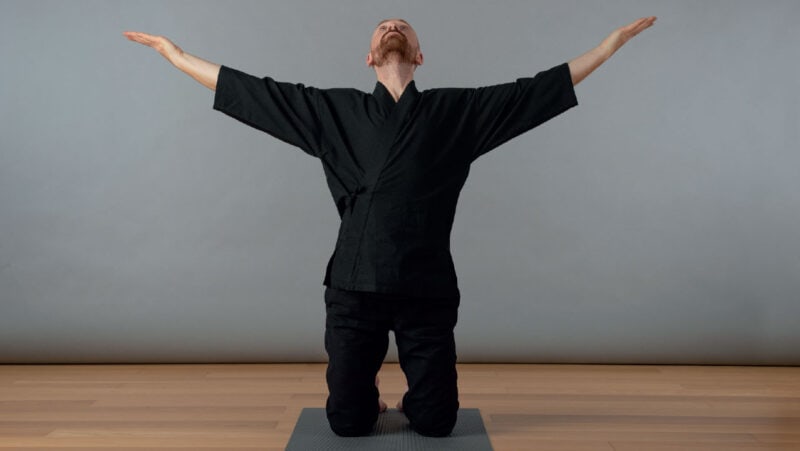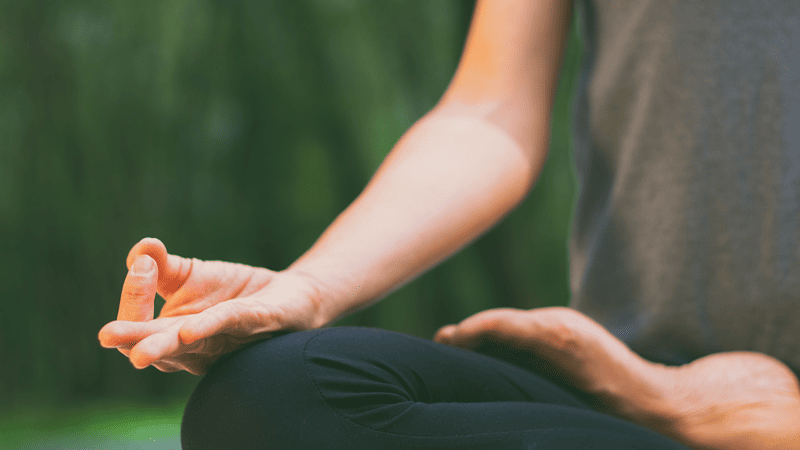Ever considered traffic jam meditation? Zen wisdom for dealing with life’s inevitable delays and difficulties. By Julian Daizan Skinner.
If you’re regularly leaving your front door these days you will face delays. While we all know that, less understood is the emotional price tag of congestion – reported as the biggest cause of day-to-day stress. I know this first hand. For a year or so I had a job where I was driving a thousand miles a week on top of an eight-hour office day. The condition of the roads determined whether my week was impossible or simply insane. When you’re behind the wheel it’s trickier than, for example, being stuck in an airport or on a train. You’re still driving even if only intermittently. There’s no way you can snooze or have a little walk or lose yourself in a good book. Some drivers get so stressed behind the wheel that it leads to homicidal fury. Just in the USA alone, there are around 1,200 (and rising) road rage incidents each year. So, learning to handle this source of stress might even become a matter of life and death.
Remember that what’s happening to you is a ‘stressor’. ‘Stress’ is your reaction. You can be a victim of your self-generated ‘stress’ or you can invest in learning how to handle it better.
In Asia, people have been learning how to handle stress for centuries and the tradition continues. In my book Practical Zen for Health, Wealth and Mindfulness, I write: “When I was studying in a Zen temple in Japan we regularly used to have stressed-out salarymen or executives come to stay, hoping to prevent their health breaking down. There was dark talk of karoshi, where employees literally work themselves to death. We also had visits from freeters, people who opt for part-time work to avoid the ruthless rat race, but then end up locked into stressful, insecure and unfulfilling positions.”
Congestion retreat
So let’s tap into some of these ancient life-skills and apply them to the modern, western traffic jam.
A good place to start is to remind yourself that lateness happens. It’s regrettable but you’re probably not facing disaster. It may even help you to take a moment to think through the worst consequences that could arise. Would you survive them? You’re almost certainly going to agree that you would. My teacher Shinzan Miyamae used to constantly quote the Zen proverb, Nana korobi, yao oki. “Seven times down; eight times up.” Humans have a lot of bounce. Stressing about the situation won’t make anything better. Phone ahead if you can, let your destination know what’s happening. You’ll more likely get sympathy than resentment. Then, once you’ve done what you can, prepare for your congestion ‘retreat’.
Yes, that’s what I propose. Treat your vehicle as your temporary hermitage and this time as an impromptu practice session. On our Zen yoga trainings we use an ancient Buddhist framework called the three secrets. You might find it useful:
Your body
Get comfortable: in your car you can’t do full yoga poses but you’ll be able to stretch, wiggle, shake the body. Allow as much stress to discharge as you can and then return your body to an upright, balanced alignment. In Zen we have a saying, iigi soku buppo – ‘correct alignment or form is the Buddha Dharma’. Sit like a Buddha and start to feel like a Buddha. The key aspect to correct form is the relaxed poise in your trunk, spine long, chin drawn slightly back, hands in your lap, eyes soft and lowered.
Your breath
When the body is poised and upright you can breathe well. A stressed person breathes in the chest. A relaxed person’s breath is powered by the diaphragm and can be felt in the abdomen. When you consciously change your breathing, you automatically change how you feel. In Zen we rest the attention on the rising and sinking of the abdomen, not trying to force or manipulate the breath but simply staying with the sensations generated by the rising and sinking. In his instructions on practice with the breath, the Buddha tells us to be “be mindful of the body in the body.” In other words, you’re not standing outside looking at the breath, you’re in it, surfing it.
Your mind
Centre your attention on the breath but nevertheless maintain an open mind and an open heart. Allow all the processes of life, including the thoughts, feelings, frustrations and worries to arise and pass.
Ideally, you’re not holding on to anything; not pushing anything away. If you find yourself getting dragged into thinking, rumination and worry, narrow your attention onto the breath. If your internal processes can flow easily, allow your breath focus to soften and broaden.
Sometimes particular thoughts or feelings or emotions might be persistent. It may feel like they’re calling for your attention. In this case, give it to them. We have a saying in Zen, “The lotus blooms in the middle of the fire”. When there is distress, sit in the middle of it. Find the physical seat of the feeling or emotion and simply be there. Shift your attention from the breath and simply be right in the middle of the distress. If the feelings get too intense, by all means, have a break – come back to the breath, but when you can stay with the physical location of the distress. I guarantee it will start to change. It may dissipate, turn to heat, moe somewhere else, even intensify for a bit, but it will change and eventually release. Then you can come back to the breath. In Practical Zen we explore this process in detail, but this will give you enough to get started.
How would it be if you could arrive at your destination, relaxed, composed, even filled with joy? Well you absolutely can. But on the road is not the best place to start your practice. To be able to make the best use of a congestion retreat, you need an ongoing daily practice. You can build up your mindfulness power in the good times, learning to deal with minor day-to-day irritations. Then, when the big stuff hits, it’s far more manageable. Think of this inner work as parallel to physical fitness; it’s more about lifestyle than crisis management.
Wishing you graceful transitions through life’s inevitable delays and holdups.
Julian Daizan Skinner is co-author of the new book Practical Zen for Health, Wealth and Mindfulness (published by Singing Dragon), which is out now and priced at £9.99







